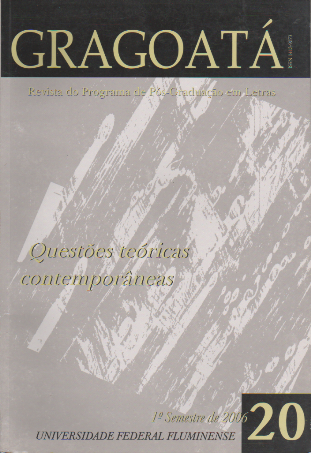New instability and symmetry: criticism and Neobaroque’s self-criticism
Keywords:
baroque, neobaroque, concretism, vanguard, instabilityAbstract
This essay proposes an interpretation of the neobaroque from the perspective of the work of its main poet-thinkers: the Brazilian Haroldo de Campos, the French-Cuban Severo Sarduy and the Argentinean Arturo Carrera. Aiming at providing a criticism of the controversial category, the text investigates Sarduy´s reflection on the origins of the baroque, alongside with its contemporary incidence, and puts forward an interpretation of Carrera´s poetry as a paradoxal reading of the neobaroque, starting from the early 70’s, as a faithful disciple of Haroldo and Sarduy, up to the present time, through a “deliberated simplism” which would become his personal characteristic. Besides, the article looks back at the pioneering adoption of the term in the beginning of the Brazilian concretist movement, in the mid 50´s.Downloads
Downloads
Published
How to Cite
Issue
Section
License
Authors who publish in Gragoatá agree to the following terms:
The authors retain the rights and give the journal the right to the first publication, simultaneously subject to a Creative Commons license CC-BY-NC 4.0, which allows sharing by third parties with due mention to the author and the first publication by Gragoatá.
Authors may enter into additional and separate contractual arrangements for the non-exclusive distribution of the published version of the work (for example, posting it in an institutional repository or publishing it in a book), with recognition of its initial publication in Gragoatá.

Gragoatá is licensed under a Creative Commons - Attribution-NonCommercial 4.0 International.











